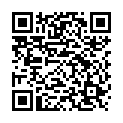|
|
|
| Module code: FT70 |
|
|
2V (2 hours per week) |
|
2 |
| Semester: 6 |
| Mandatory course: no |
Language of instruction:
German |
Assessment:
Written exam
[updated 14.06.2021]
|
FT70 (P242-0100) Automotive Engineering, Bachelor, ASPO 01.10.2019
, semester 6, optional course, technical
|
30 class hours (= 22.5 clock hours) over a 15-week period.
The total student study time is 60 hours (equivalent to 2 ECTS credits).
There are therefore 37.5 hours available for class preparation and follow-up work and exam preparation.
|
Recommended prerequisites (modules):
None.
|
Recommended as prerequisite for:
|
Module coordinator:
Prof. Dr. Hans-Werner Groh |
Lecturer:
Stefan Küster,
[updated 15.03.2021]
|
Learning outcomes:
After successfully completing this module, students will be able to describe the evolution of the tire, how pneumatic tires work, the requirements of tires, and the basic principles of tire construction.
They will be able to explain the basic mathematical-physical principles of tire properties.
They will be able to describe the design parameters and material properties of modern radial tires and their manufacturing process.
Students will be able to describe the driving, comfort and rolling resistance characteristics of tires in relation to the road and the vehicle, and identify measures to optimize these with regard to the conflicting objectives.
They will be able to explain the most important tire tests in the tire and vehicle industry.
[updated 14.06.2021]
|
Module content:
History and evolution of tires
Tire applications and tire selection
Requirements for tires, load capacity, safety factors, geometry, standardization
Tire vibration, comfort, tire-road noise
Rolling resistance, tire uniformity, tire labeling
Static and dynamic friction, forces, power transmission, tire characteristics, mileage
Simulating tire characteristics, adhesion detection/control
Tire construction, compound properties, tire testing, tire manufacturing
[updated 14.06.2021]
|
Recommended or required reading:
[still undocumented]
|


